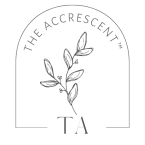
Healing Trauma and Unleashing Your Potential: Why Addressing the Subconscious Mind is Critical for Emotional Well-Being”
Did you know that the decisions you make on a daily basis are largely influenced by your subconscious mind? In fact, renowned scientist Bruce Lipton estimates that the subconscious mind controls up to 95% of our thoughts, behaviors, and actions. This means that the way we think, feel, and act is largely determined by what’s happening beneath the surface of our conscious mind.
What is the Subconscious Mind?
The subconscious mind is the part of our mind that operates below our conscious awareness. It’s responsible for controlling our automatic behaviors and responses, such as breathing, heart rate, and digestion. It also stores all of our memories, beliefs, and emotions, many of which we’re not even aware of.
The Difference Between the Conscious and Subconscious Mind
Our conscious mind is the part of our mind that we’re aware of. It’s responsible for our logic, reasoning, and decision-making. It’s the part of our mind that we use to process information and make conscious choices.
On the other hand, our subconscious mind operates behind the scenes. It’s responsible for our automatic behaviors and responses, and it stores all of our memories, beliefs, and emotions. It’s the part of our mind that’s responsible for our habits, fears, and phobias.
What the Conscious Mind Controls vs. What the Subconscious Mind Controls
- The conscious mind controls our logic, reasoning, and decision-making.
- The subconscious mind controls our automatic behaviors and responses, as well as our habits, fears, and phobias.
- The subconscious mind is responsible for storing all of our memories, beliefs, and emotions, many of which we’re not even aware of.

Why the Subconscious Mind Matters for Emotional/Trauma Healing
Looking at the beliefs, unresolved trauma, and repressed emotions stored in the subconscious is a critical piece to emotional/trauma healing. Here’s why:
- Our beliefs are largely formed in childhood and are stored in the subconscious mind. These beliefs can affect the way we perceive ourselves and the world around us, and can lead to limiting beliefs and self-sabotage.
- Unresolved trauma can also be stored in the subconscious mind, leading to symptoms such as anxiety, depression, and PTSD. It’s important to address this trauma in order to heal and move forward.
- Repressed emotions can also be stored in the subconscious mind, leading to physical symptoms such as headaches, back pain, and digestive issues. By acknowledging and processing these emotions, we can release them and improve our overall health and well-being.
The Subconscious Mind + EVOX Therapy
Here at The Accrescent, Founder, and Practitioner, Leigh Ann Lindsey, combines EVOX Therapy with subconscious work, rapidly allowing clients to identify and clear emotional blocks. During sessions, we will identify where the individual may feel stuck in their lives in emotional and or behavioral patterns.
- Emotional Patterns: cyclical or chronic patterns of sadness, lethargy, anxiety, anger, fear, etc.
- Behavioral Patterns: cyclical or chronic patterns in behavior that can include anything from emotional eating, poor discipline with finances, trouble setting boundaries, attracting toxic relationships, trouble caring for the self, etc.
Once we have identified areas of patterns the individual would like to shift out of, we begin the process of using EVOX Therapy and subconscious work to identify the subconscious limiting beliefs, repressed emotions and/or unresolved experiences that are keeping them stuck. As we begin to identify these areas of “turbulence” as Leigh Ann likes to say, we can support the release and reprogramming of the subconscious blocks through EVOX Therapy and subconscious modeling.
In conclusion, the subconscious mind plays a major role in our daily lives, particularly our emotions. By understanding the difference between the conscious and subconscious mind, and by addressing the beliefs, unresolved trauma, and repressed emotions stored in the subconscious, we can unlock the power within and improve our overall health and well-being.
More Resources on the Subconscious Mind
References:
- Lipton, B. (2016). The Biology of Belief: Unleashing the Power of Consciousness, Matter and Miracles. Hay House, Inc.
- Dispenza, J. (2012). Breaking the Habit of Being Yourself: How to Lose Your Mind and Create a New One. Hay House, Inc.


